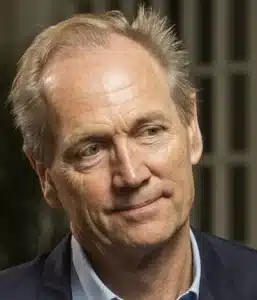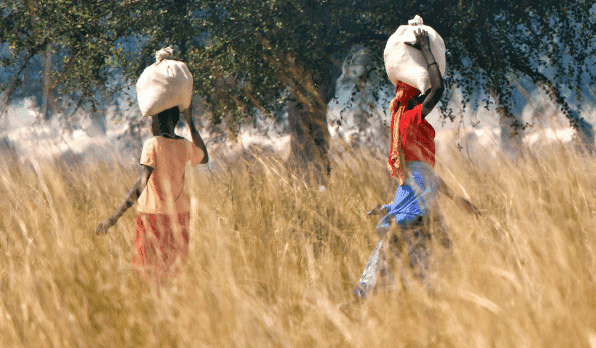No region’s challenges are simple – let alone a continent as diverse and varied as Africa. Distilling from this tangled nexus of economic, political, and cultural challenges a single issue is made all the more difficult because of the rate at which Africa is changing. During the last decade, the region’s evolving dynamics have led us to the adoption of a key principle: promoting financial inclusion cannot be effective without addressing the systemic, structural problems in these countries’ financial systems.
Private financing – matched with state encouragement – underpins any significant infrastructural improvement, wherever you look in the world. But Africa has been starved of domestic private investment, and this shortfall will only become more acute as the continent seeks to equip itself to compete as a hub for sustainable, green economic development which will enrich equitably and liberate ordinary Africans from being hostages to the ravages of climate change.
The past decade has been bookended by two era-defining crises: the global financial crisis (or “Great Recession”) and Covid-19. In 2012, the newly established FSD Africa set out in a world still reeling from the cataclysm of a financial meltdown which began in the West but soon rippled beyond. In 2023, as we look back on ten years, Africa is still struggling to cope with the wake of another crisis – a global pandemic which saw the precariousness of global health inequalities laid bare, compounded by a war in Europe which has disrupted the continent’s access to vital commodities.
But despite these challenges, Africa’s growth has been meteoric – only two years after the 2008 crash sub-Saharan Africa constituted among the fastest growing regions on earth, recording a GDP growth of 6%, and according to the World Bank the region’s emergence from the recent pandemic has seen it beat almost every economic forecast. This growth, whilst encouraging, hides fundamental issues, however – ones which we are determined to address.
While certain African states have witnessed meteoric economic growth, progress has not been consistent or evenly distributed – by 2012, GDP in Sub-Saharan Africa had fallen to 2.7%, while double-digit inflation in Eastern Africa arising from increased food prices and higher fiscal deficits had ushered in a period of macroeconomic instability and unpredictability.
Indeed, a growing young population (Africa will soon take its place as the world’s most populous continent, and 40% of Africans are not yet 14 years old) creates an acute and urgent need for steady employment which facilitates aspiration. In order to fully deliver the economic benefits of employment, these jobs need to be formalised, delivering adequate protections and measurable contributions via tax and spending.
Authoritative commentators have identified the need for Africa’s prosperity to be underpinned by properly invested, formal and long-term economic drivers. The Brookings Institution Foresight Africa notes that, “Despite two decades of solid growth, industry, tradable services and agro-industry are still a small share of African employment and output”.
But the construction and expansion of the formal sector requires significant initial capital outlays, which Africans are consistently denied: domestic private investment as of 2012 had run well below the levels necessary for rapid industrial growth- at about 11% of GDP since 1990. The World Bank’s figures also indicate a worrying trend – investment in infrastructure with private sector participation in sub-Saharan Africa plummeted from US $15bn in 2012 to just $5bn in 2019.
Over the last ten years, FSD Africa has pro-actively worked with governments, regulators, market authorities and financial institutions to address this shortfall, and to create the environment necessary for private capital involvement via policy changes, regulatory evolution and clear, transparent frameworks which inspire investor trust. To stimulate a growth in domestic private investment, we have devised a concerted campaign to develop innovative new financial vehicles and blended finance instruments. But above all, we have sought to correct a misconception prevalent among international investors – and domestic investors too – that Africa is a high-risk investment.
We are proud of this ten-year record, but we know better than anyone that we need to accelerate these efforts. As Africa confronts the deadly consequences of climate change, the urgency of attracting more private investment to the continent only grows. Concerningly, the gulf between what Africa needs to fund its plans to tackle climate change, and what is actually available from public finances, is vast – running at almost US $250bn a year. Strikingly, in the region arguably most at risk from ongoing climate change, Africa’s private sector share of climate finance is lower than any other region, at 14%.
Sobering as these figures are, the reasons to be optimistic about Africa’s economic trajectory are only multiplying. Partly because of a traditional lack of financial services, Africa has emerged as a leader in mobile money, which is democratising financial services in even the most marginalised communities, and rapidly enfranchising its young people in the formal economy, generating exponential opportunities for entrepreneurs and small businesses to access credit and financing. Meanwhile, not unconnected with the rise of mobile payments, a burgeoning tech sector on the continent is attracting the attention and investment of investors globally (Africa has produced four tech unicorns and counting). Finally, Africa’s great peril could, with proper investment and management, become a major economic engine: the development of a carbon offset and credit industry, rewarding states for the preservation of their ecological wealth, could spur a great inflow of capital to the continent, and ensure its economic development does not come at the price of its wondrous natural wealth.
These are reasons to be profoundly hopeful, but no room for complacency. Our work to construct financial markets which serve Africans, deliver sustainable, green and equitable economic growth, and enables this great continent to realise its unmatched potential, must continue apace.





